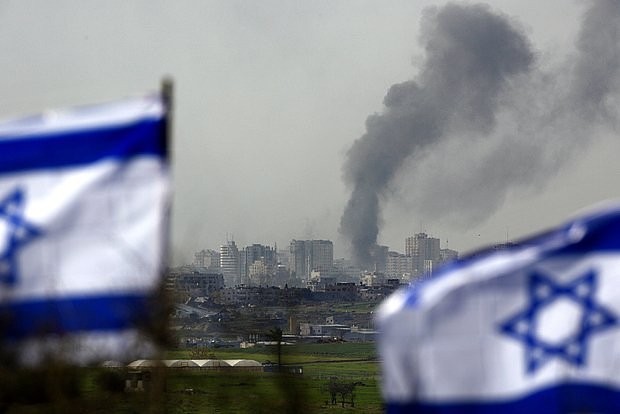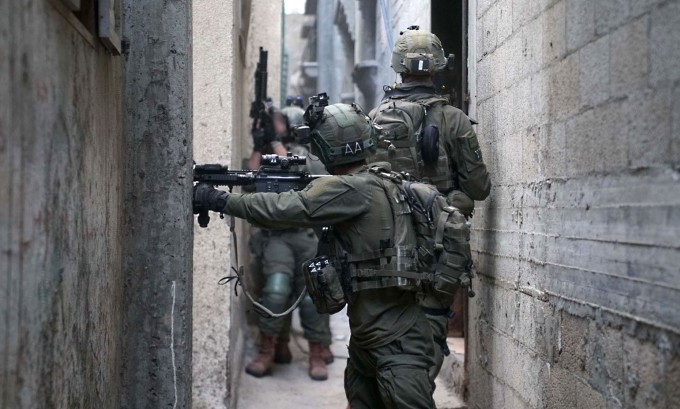The Times of Israel reported that Israeli officials said the current round of talks with Hamas would be the last chance for the parties to reach a ceasefire agreement.
" This is the last chance before we attack Rafah," Israeli officials told Channel 12, referring to the ceasefire negotiation conditions sent to Hamas through an Egyptian mediator.
 |
| Israel has announced it will attack the city of Rafah as soon as peace talks break down. Photo: AP |
Khalil Al-Hayya, a senior Hamas member in Doha, also confirmed that the latest proposals from Israel had been received through Egypt and Qatar. However, the movement needed time to study them before making an official statement.
Egypt's negotiator revealed that Israel has not added any new conditions to the ceasefire agreement with Hamas, but is willing to make concessions to reduce the number of hostages to be released from 40 to 33. Hamas had previously proposed releasing 20 hostages to reach a ceasefire agreement, which was rejected by Israel.
Talks with the Egyptian mediator delegation last week were "intensive and progressive in all aspects". Cairo is trying to put pressure on Hamas and convince it to accept a ceasefire as Tel Aviv prepares its forces for a military operation against the city of Rafah.
Israeli officials have warned that Tel Aviv will not allow Hamas to deliberately "buy time" through negotiations to reorganize its forces. The IDF has mobilized reserve forces, preparing to launch an operation in Rafah if the latest round of negotiations freezes or fails to achieve the desired results.
If the hostage talks progress, Israel is ready for a deal that would restore lasting peace in the Gaza Strip. Israel’s proposed new deal includes a commitment to return displaced Palestinians to their homes in the northern Gaza Strip and withdraw the IDF from the strip’s separation corridor, restoring freedom of movement for civilians. Additionally, Israel would be willing to discuss establishing a sustainable ceasefire as part of the implementation of the second phase of the deal, which would follow the release of the hostages.
Meanwhile, Israel's foreign minister said the country could suspend plans to attack the city of Rafah in Gaza if it reaches an agreement to release hostages with the Hamas group.
 |
Israeli soldiers in action in Khan Yunis, southern Gaza Strip. Photo: AFP |
"Rescuing the hostages is our top priority," Israeli Foreign Minister Israel Katz said in an interview with Channel 12 television.
Asked if this included the possibility of delaying the offensive on the city of Rafah, which Israel considers the last Hamas stronghold in Gaza, Mr Katz confirmed that it was a possibility.
" If we reach an agreement, we will suspend the campaign," Mr. Katz said.
Israel Katz's comments come as international negotiators push for a ceasefire in Gaza after six months of fierce fighting. Although Katz is a member of Prime Minister Benjamin Netanyahu's security cabinet, he is not a member of Israel's war cabinet, which is overseeing the Gaza campaign.
Israel launched the operation in Gaza in response to a Hamas offensive in the south of the country in early October 2023. Tel Aviv said Rafah is home to four Hamas combat battalions, reinforced with thousands of fighters withdrawn from other areas in Gaza, and that it must defeat these units to achieve final victory.
However, Rafah is currently home to about 1.5 million Palestinians, and many of Israel's allies and the international community have warned that an operation into Rafah would be catastrophic for civilians there.
The United States and 17 other countries last week called on Hamas to release all Israeli hostages as a way to help end the crisis in Gaza. Hamas wants any ceasefire between the two sides to put a permanent end to the current conflict, while Israel wants to pursue the war until it has completely neutralized Hamas.
Israel estimates that 129 of the approximately 250 hostages still remain in Gaza after the November 2023 hostage swap. The IDF said 34 of those hostages have died. The conflict in the Gaza Strip over the past six months has left more than 34,000 people dead, mostly women and children.
Source


































































































Comment (0)